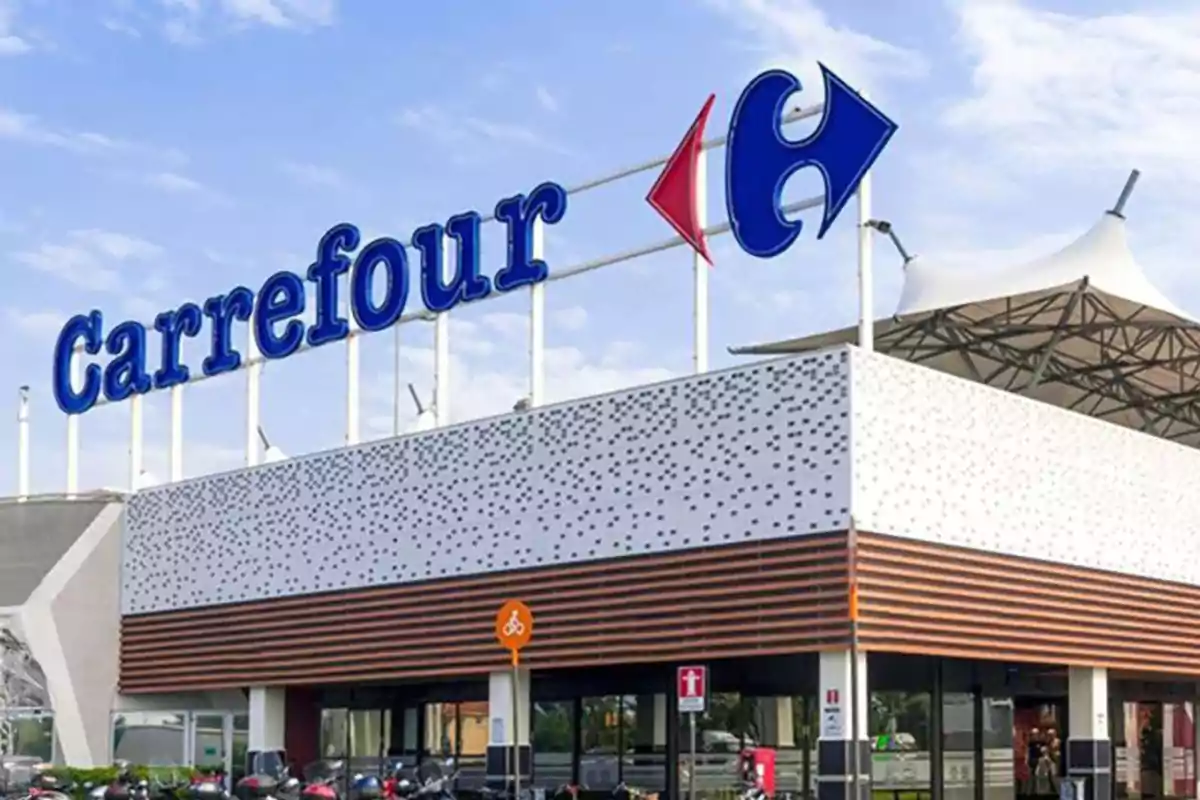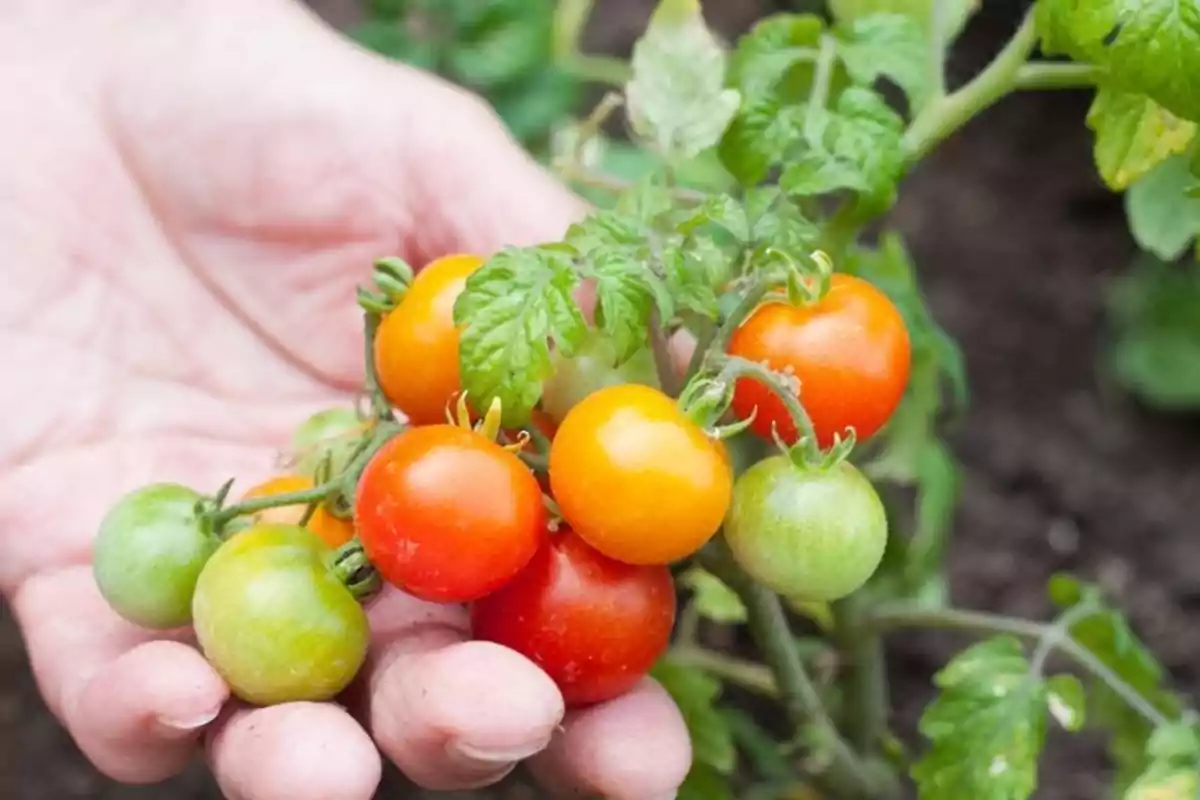
Crisis at Carrefour: its tomato labeling reported for 'violations'
The French supermarket chain is in trouble for 'misleading labeling,' loss of market share, and declining profits
The French multinational Carrefour is going through one of its worst moments in Spain. For years, it has been a relevant player in the food distribution sector. However, the latest economic data and growing social pressure are showing the progressive deterioration of its position in the country.
It is not only losing market share to competitors such as Mercadona and Lidl, but it has also been recently reported for alleged fraudulent practices in the labeling of agricultural products. The accusation calls into question its commitment to transparency and respect for consumers.
Worrying results: profits and sales drop
According to the accounts filed with the Mercantile Registry by Centros Comerciales Carrefour, the subsidiary that manages its operations in Spain, the company closed the 2024 fiscal year with a profit of 268.6 million euros. This figure represents a 17.5% decrease compared to the previous year, when it obtained 347.8 million euros. At the same time, sales also fell by 1.5%, reaching 9.176 billion euros.
This decline can't be understood as an isolated event. It seems to be a symptom of a broader process of loss of relevance in the Spanish market. According to the latest data from Worldpanel by Numerator analyzed by the newspaper Expansión, Carrefour has reduced its market share. It has done so to 9.2% in June 2025. These numbers represent a 0.7% drop compared to the previous year.
In contrast, Mercadona is consolidating its leadership with 26.7% (an increase of 0.3 points). Lidl is positioning itself as the third player, reaching 6.7% after rising 0.4 points.
Complaint for misleading labeling: the case of cherry tomatoes
Carrefour's difficult economic situation is compounded by a new scandal that could further damage its public image. The Federation of Consumers and Users CECU, together with the Coordinator of Farmers and Ranchers Organizations (COAG), has filed a formal complaint. It has done so before the Directorate General of Consumer Affairs of the Ministry of Social Rights, Consumer Affairs and Agenda 2030.
The reason for the complaint is serious: Carrefour is accused of marketing cherry tomatoes from Western Sahara. These have allegedly been incorrectly labeled as if they were of Moroccan origin. If confirmed, this practice would constitute a direct violation of European legislation on labeling and consumer rights.

The tomatoes in question are produced by the company Azura, which has more than 988 acres (400 ha) of greenhouses in Western Sahara. Nevertheless, the products are presented on Carrefour's shelves as coming from "Morocco," hiding their true origin.
A deception already condemned by European justice
This type of "manipulation" is not new and has already been the subject of judicial analysis. On October 4, the Court of Justice of the European Union (CJEU) issued a ruling. In it, it established that agricultural products originating from Western Sahara can't be labeled as coming from Morocco. As they explain, it is a different and non-autonomous territory under international law.
The ruling has been clear: "The indication of the country of origin that must appear on tomatoes and melons produced in Western Sahara may only designate Western Sahara". Any other designation, such as "Morocco," constitutes a form of deception to the consumer. The consumer may believe that they are buying a product with a different geographical origin than the real one.
Critical voices: consumers and farmers up in arms
From CECU, Eduardo Montero, a food expert, has demanded that current legislation be complied with: "We consumers have the right to know where the food we buy really comes from. Especially when it affects such an important issue for Spanish society as Western Sahara."
Meanwhile, Andrés Góngora, a member of COAG's Executive Committee, has denounced the unfair competition that this practice represents for Spanish farmers. "We have never found a label on tomatoes from this company indicating that they have been produced in Western Sahara. Traceability and certifications are key to knowing the exact point of production. This seriously harms our national producers."
Damage to consumer trust
The complaint not only affects the legality of the products sold by Carrefour, but it erodes consumers' trust in the chain. In a context where more and more people are demanding accurate information about the origin of the products they consume, for ethical, health, or environmental reasons, this type of practice can have a devastating impact on a company's reputation.

In addition, the use of agricultural products from disputed territories such as Western Sahara raises political and ethical implications that many consumers are not willing to ignore. Misleading labeling deprives citizens of the right to make informed decisions.
A model in crisis
Carrefour is not only facing an economic setback in Spain, with significant losses in profits and market share. It must also now face a major reputational crisis. The complaint by consumer and farmer organizations highlights the shortcomings of a model that, far from moving toward transparency, seems to have opted for opacity.
The company is losing ground, both financially and ethically. The French company faces the challenge of rethinking its strategy, improving its relationship with local producers. Above all, regaining credibility with the millions of people who decide every day where to do their shopping.
More posts: